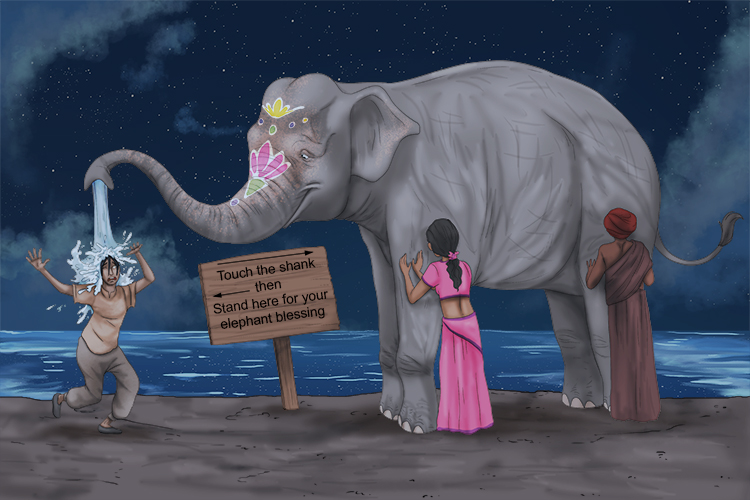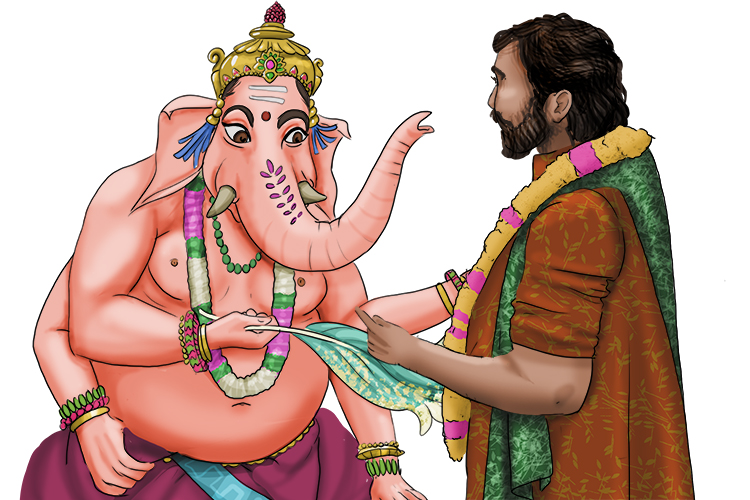Darshan – The act of simply looking at (beholding) a deity, revered person or sacred object and receiving a blessing in return
(Pronounced dahr-shan)
To remember the meaning of the Hindu term Darshan, use the following mnemonic:
In the dark they touched the shank (Darshan) of the elephant respectfully and in return it gave them a blessing. They didn't need to touch the shank, they could have just looked at it to get the blessing.

Darshan is the beholding, or viewing, of a deity (a god), a revered person or a sacred object. Hindus believe that the experience is reciprocal – that is, the god, revered person or object being viewed responds to the viewer by conferring a blessing on them.
Darshan can be practised in the home – for example, in front of an altar with a picture of a deity – or at a site of worship, or in a visualised setting during meditation. Darshan can also be bestowed by a guru on his or her followers.

Darshan is the act of beholding (intently viewing)a deity, revered person or sacred object in return for a blessing.
The term darshan also refers to Hinduism's six main systems of 'looking' at scripture and other sources of sacred knowledge. These are Shankya, Yoga, Nyaya, Vaisheshika, Mimamsa and Vedanta. Yoga darshan, for instance, refers to the acquisition and retention of two states of mind: one-pointed concentration, and the neutralisation of habitual thought patterns.




